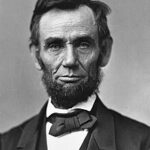The Historic Decision
On January 1, 1863, President Abraham Lincoln signed the Emancipation Proclamation. This executive order declared freedom for approximately 3.5 million enslaved people in rebellious states. Lincoln carefully crafted the document as a war measure under his constitutional powers as Commander-in-Chief. The proclamation strategically excluded border states loyal to the Union to maintain their support.
Strategic Military Purpose
The Emancipation Proclamation served multiple strategic objectives beyond moral considerations. ⚔️ It weakened the Confederacy by encouraging enslaved people to flee plantations and join Union forces. Over 200,000 formerly enslaved men eventually served in Union armies and navies. The decree also prevented European powers, particularly Britain and France, from supporting the Confederacy. These nations had abolished slavery and could not support a cause defending the institution.
Limited but Transformative Scope
📊 The proclamation applied only to states in rebellion, not to slaveholding border states or areas under Union control. This limitation reflected Lincoln’s careful legal and political calculations. He needed to maintain constitutional authority while avoiding alienation of crucial border state allies. Despite these constraints, the decree fundamentally transformed the Civil War’s purpose from preserving the Union to achieving human freedom.
Impact:
Immediate Consequences
The Emancipation Proclamation immediately transformed American society and the Civil War’s trajectory. 🌍 International opinion shifted decisively toward the Union cause, making European intervention virtually impossible. Enslaved people across the South began fleeing to Union lines in unprecedented numbers. The proclamation energized abolitionist movements and gave moral clarity to Union war efforts. Northern recruitment increased as the war gained moral purpose beyond mere political unity.
Long-term Historical Significance
The decree paved the way for the Thirteenth Amendment, which permanently abolished slavery nationwide in 1865. It established the precedent for federal action on civil rights issues. The proclamation demonstrated presidential power to address national moral crises through executive action. 🔥 However, it also intensified Confederate resistance and prolonged the war’s duration and casualties. Southern states viewed the decree as confirmation of their fears about Republican intentions.
Lasting Legacy
💰 Economic transformation followed as free labor replaced slave labor throughout the South. The proclamation began Reconstruction-era debates about citizenship, voting rights, and racial equality. It remains one of America’s most celebrated presidential decisions, symbolizing the nation’s commitment to human freedom. Modern civil rights movements continue to invoke the Emancipation Proclamation as inspiration for ongoing struggles for equality. The document established Lincoln’s reputation as the “Great Emancipator” and demonstrated how presidential leadership can drive fundamental social change during national crises.
